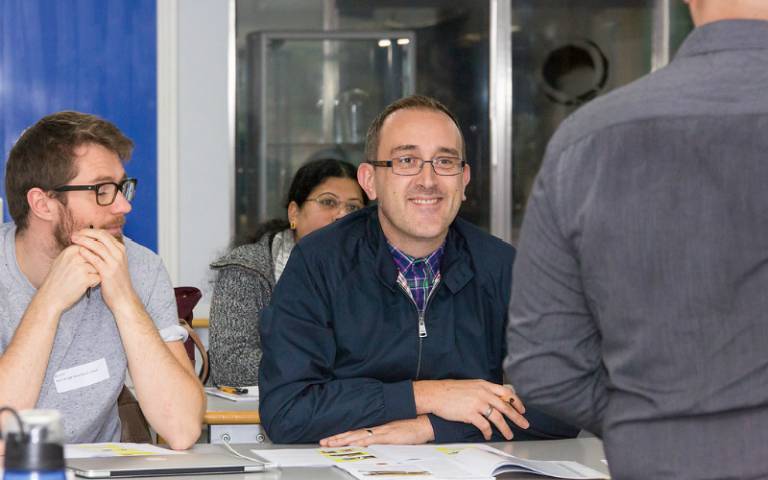CLEAPSS Introduction to supporting physics
03 July 2024, 9:00 am–4:00 pm

*Fully booked.*| This one-day practical course is designed for science technicians who have limited background knowledge in physics and are new to working with the physics equipment used in science departments.
Event Information
Open to
- All
Availability
- Sold out
Cost
- £180.00
Organiser
-
IOE Short Courses
Couse overview
The objective of the course is to enable technicians to gain some of the skills required to support physics teaching so that they can carry out their role with greater confidence. They will have the opportunity to set up circuits, use a multimeter, solder, consider some common hazards in physics, identify, and set up and use a variety of physics equipment.
Course structure
During the day the following will be covered:
- Working with electricity. An introduction to voltage, current and resistance. Changing fuses. Using circuit diagrams to set up circuits. Using a multimeter to check fuses, batteries, connecting leads and to find faults in circuits.
- Soldering equipment. Different soldering techniques to join electrical contacts. Making connecting leads and soldering components onto circuit board.
- Recognising some common hazards in physics.
- Identifying apparatus and how it can be used.
- Setting up and using a variety of physics equipment such as a ripple tank, ray boxes, signal generator, vibration generator, and low voltage power supplies.
Course requirements
To get the most out of the course, participants need to bring a multimeter with a resistance range.
Certificates
You'll get a certificate of attendance on completing the course.
About CLEAPSS
The Consortium of Local Education Authorities for the Provision of Science Services (CLEAPSS) has a membership of more than 28,000 schools and colleges, mainly in England, Wales and Northern Ireland, where its advice is recognised by HSE, DFE and OFSTED as representing best practice in these areas. As such, it's used by employers as the basis for them to discharge their responsibilities under the H&S at work act, 1999.
 Close
Close

